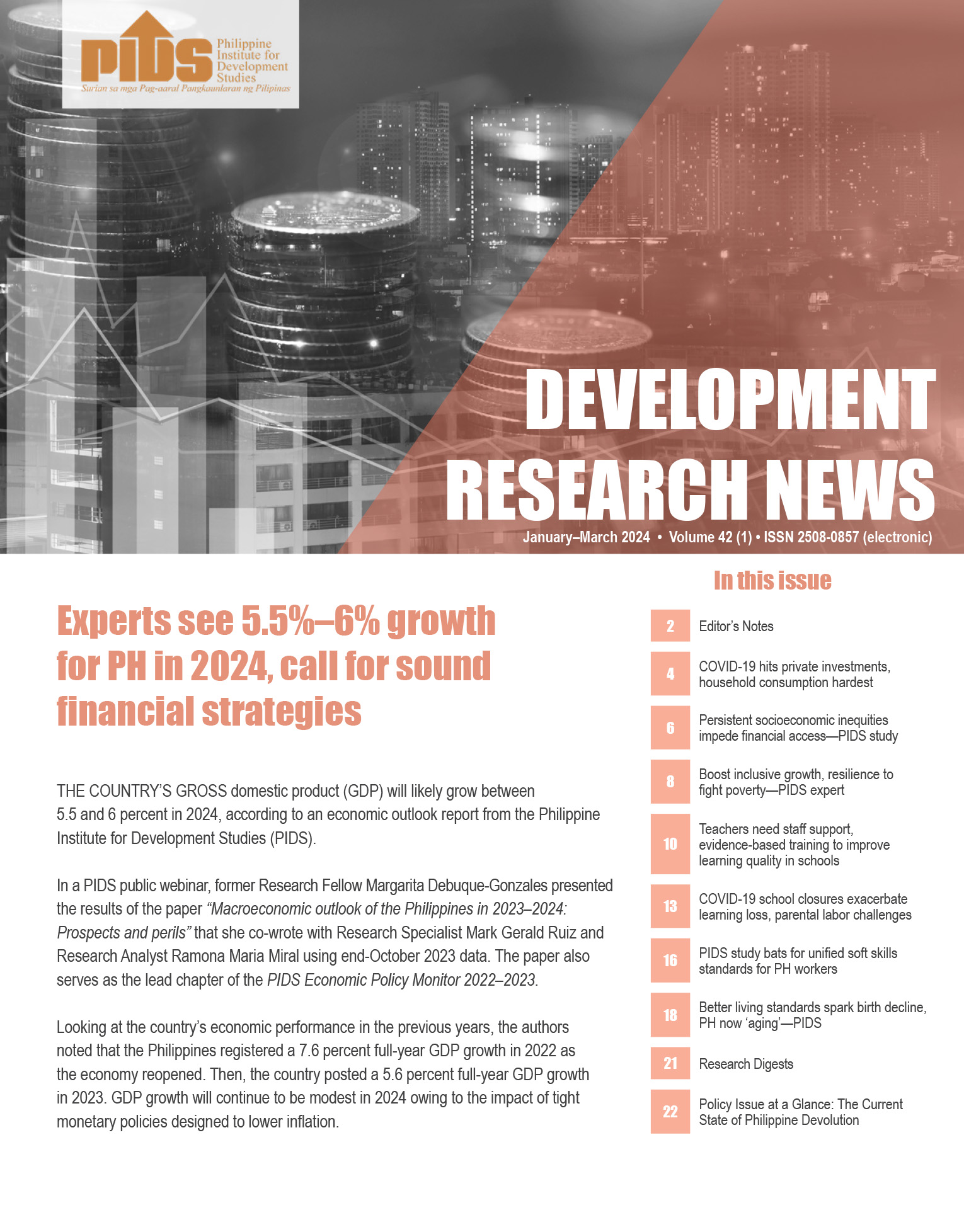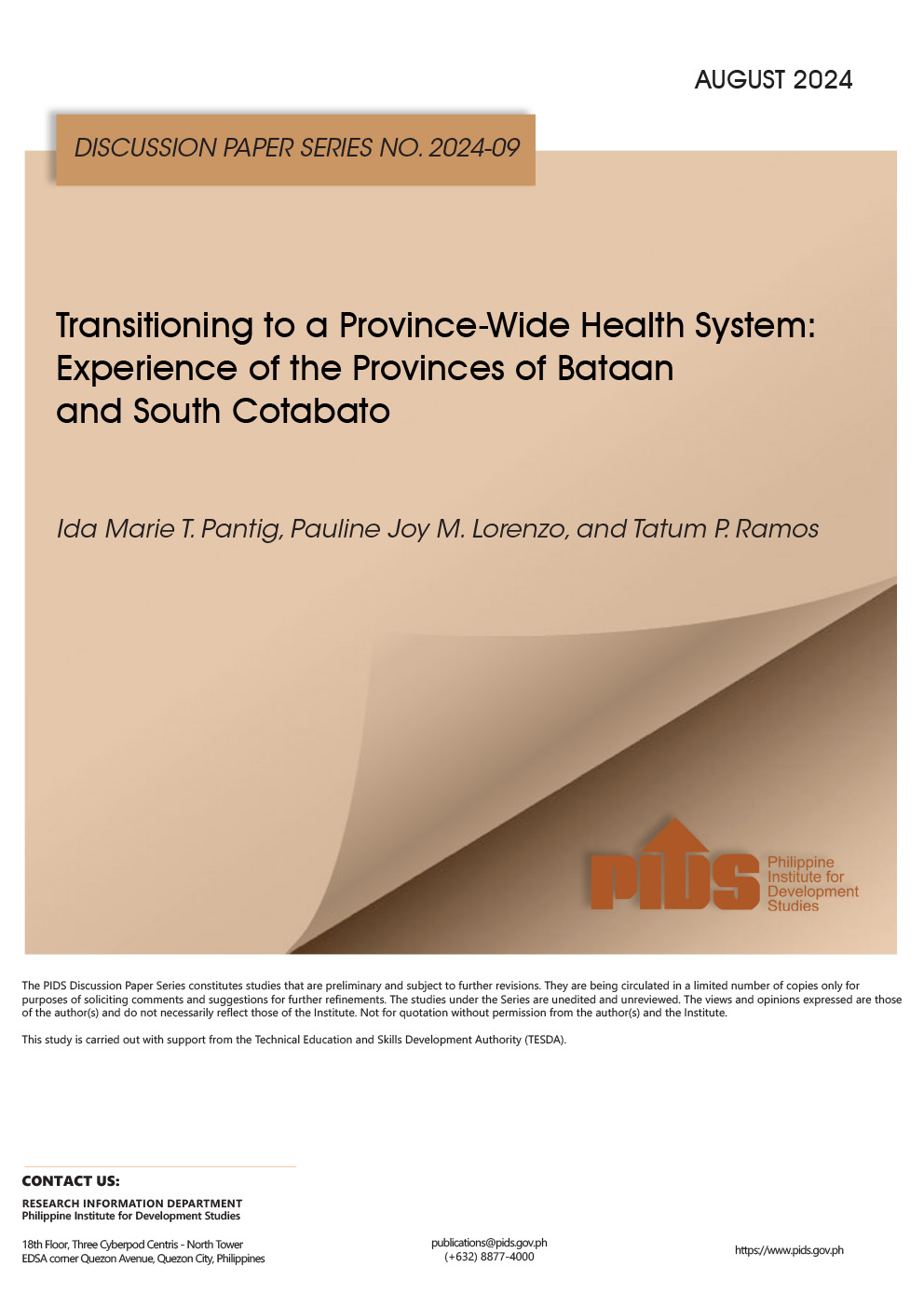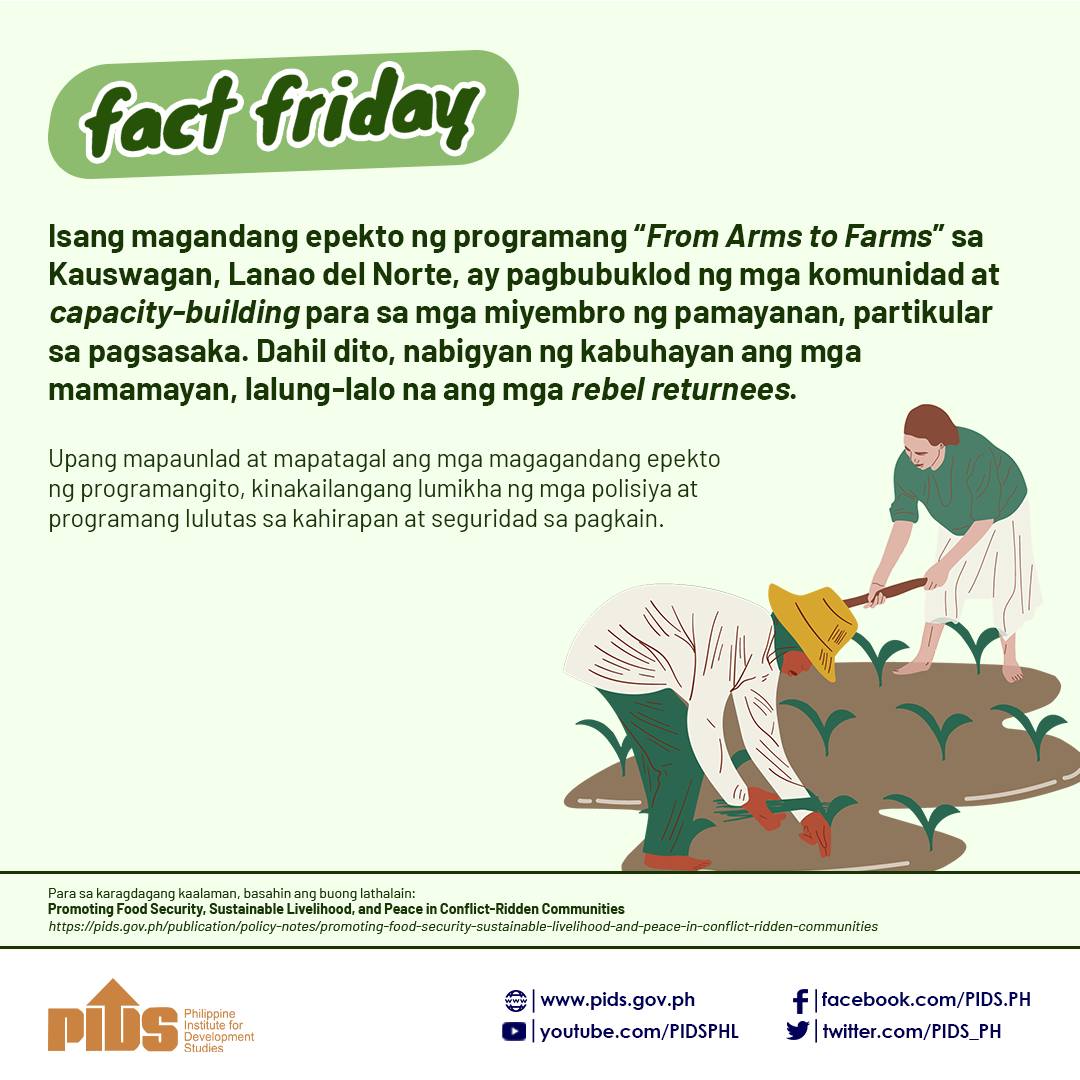On August 5, 2020, two experts from the University of the Philippines (UP) Mindanao School of Management (SOM) predicted the future of food systems and provided lessons for leaders in a webinar entitled “Food Systems and Leading Organizations in the New Normal.”
According to UP Mindanao Chancellor Larry Digal as he opened the online forum, the pandemic agitated and disrupted both food systems and leadership in organizations.
“Food chains are unchained and are going through a process of reconfiguring. Leaders know that their organizations and employees, their markets and stakeholders, are now subjected to economic and health shocks,” he added.
One of the two experts, Professor Sylvia Concepcion, an adjunct professor and former chancellor of the University, discussed the future of food systems through her presentation entitled “Unchained: Food Systems in the New Normal.” It highlighted that COVID-19 pandemic drastically changed the way conventional supply chains operated. She mentioned about how chains were before and during the community lockdown and how businesses need to thrive under new normal conditions.
“Agribusiness is a chain of relationships,” she said.
“Input suppliers are linked to farms, which are linked to marketing activities. But when public transportation was suspended and farm labor was stopped, vegetables had to be thrown away and everyone in the chain lost revenue,” she said. This was despite instructions to minimize disruptions to supply chains stipulated in the Bayanihan “We Heal As One” Act.
“The future of food now is in the localization of food sources. A shorter food supply chain. Production that is closer to the local community,” she said.
She observed that consumers need easy to cook, easy to prepare ready-mixed products from nearby stores, but that safety protocols should be in place for food quality.
“In households where income has been lost, there will be a shift to lower priced items, and the seller must be able to provide for these market segments,” she said. This touched on the estimated 2% decrease in the Philippines’ Gross Domestic Product (IMF, 2020), though President Rodrigo Duterte remained optimistic in his State of the Nation Address, saying that the Philippines’ fiscal position is strong.
Concepcion noted that local government units created a novel disruption in the conventional food supply chain when LGUs became direct buyers of basic food necessities such as rice and vegetables for their constituents.
To adapt to the changing environment effectively and efficiently, Concepcion proposed that government invest extensively in research and extension services so that a systematic approach to resolving disruptions in the food supply chains can be put in place to respond to calamities. Her remarks reinforced a report by the Philippine Institute of Development Studies in 2017 that Philippine spending for research and development was less than a fifth of 1 percent of GDP, way below the recommended 1 percent of GDP for developing countries.
At the end of her presentation, Concepcion stressed the importance of the private sector’s readiness to take part in the Fourth Industrial Revolution by taking full advantage of the internet to significantly revolutionize the food supply chains.
The second speaker is Atty. Marianne Esther Aniceto-Guinomla, a lecturer at SOM and human resource director of Dole Philippines, who discussed leading organizations in the new normal. She pointed out that Republic Act 11165, the Telecommuting Act that made online work-from-home a legitimate work arrangement, was passed into law in 2019 before the COVID-19 pandemic. UPMin
According to UP Mindanao Chancellor Larry Digal as he opened the online forum, the pandemic agitated and disrupted both food systems and leadership in organizations.
“Food chains are unchained and are going through a process of reconfiguring. Leaders know that their organizations and employees, their markets and stakeholders, are now subjected to economic and health shocks,” he added.
One of the two experts, Professor Sylvia Concepcion, an adjunct professor and former chancellor of the University, discussed the future of food systems through her presentation entitled “Unchained: Food Systems in the New Normal.” It highlighted that COVID-19 pandemic drastically changed the way conventional supply chains operated. She mentioned about how chains were before and during the community lockdown and how businesses need to thrive under new normal conditions.
“Agribusiness is a chain of relationships,” she said.
“Input suppliers are linked to farms, which are linked to marketing activities. But when public transportation was suspended and farm labor was stopped, vegetables had to be thrown away and everyone in the chain lost revenue,” she said. This was despite instructions to minimize disruptions to supply chains stipulated in the Bayanihan “We Heal As One” Act.
“The future of food now is in the localization of food sources. A shorter food supply chain. Production that is closer to the local community,” she said.
She observed that consumers need easy to cook, easy to prepare ready-mixed products from nearby stores, but that safety protocols should be in place for food quality.
“In households where income has been lost, there will be a shift to lower priced items, and the seller must be able to provide for these market segments,” she said. This touched on the estimated 2% decrease in the Philippines’ Gross Domestic Product (IMF, 2020), though President Rodrigo Duterte remained optimistic in his State of the Nation Address, saying that the Philippines’ fiscal position is strong.
Concepcion noted that local government units created a novel disruption in the conventional food supply chain when LGUs became direct buyers of basic food necessities such as rice and vegetables for their constituents.
To adapt to the changing environment effectively and efficiently, Concepcion proposed that government invest extensively in research and extension services so that a systematic approach to resolving disruptions in the food supply chains can be put in place to respond to calamities. Her remarks reinforced a report by the Philippine Institute of Development Studies in 2017 that Philippine spending for research and development was less than a fifth of 1 percent of GDP, way below the recommended 1 percent of GDP for developing countries.
At the end of her presentation, Concepcion stressed the importance of the private sector’s readiness to take part in the Fourth Industrial Revolution by taking full advantage of the internet to significantly revolutionize the food supply chains.
The second speaker is Atty. Marianne Esther Aniceto-Guinomla, a lecturer at SOM and human resource director of Dole Philippines, who discussed leading organizations in the new normal. She pointed out that Republic Act 11165, the Telecommuting Act that made online work-from-home a legitimate work arrangement, was passed into law in 2019 before the COVID-19 pandemic. UPMin











